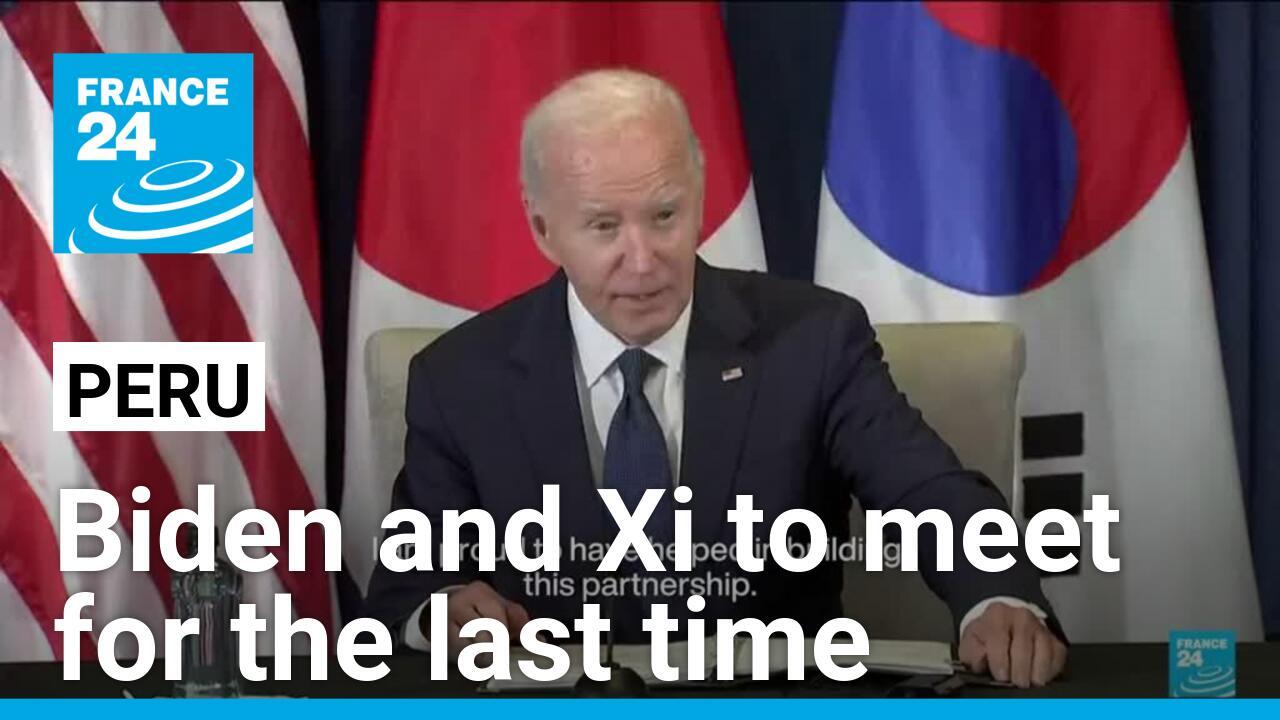Upcoming Biden-Xi Meeting Amidst Rising Tensions
As the geopolitical landscape evolves, U.S. President Joe Biden is poised to engage in a pivotal meeting with Chinese President Xi Jinping this Saturday, a dialogue that senior administration officials suggest may not be repeated for some time. This key meeting unfolds as both nations brace for a potentially confrontational phase in their diplomatic relations, particularly in the context of the political resurgence of Donald Trump.
Context of the Meeting
The forthcoming summit is set against the backdrop of the Asia-Pacific Economic Cooperation (APEC) summit in Lima, Peru. During this critical gathering, Biden and Xi are anticipated to tackle an array of global issues, with special emphasis on the intensifying tensions that have characterized Sino-American relations in recent years.
This will mark the first in-person meeting between the two leaders since their last phone conversation in April. According to an unnamed senior official from the Biden administration, “The conversations are not easy. That frankness has been important in managing the relationship.” This sentiment underscores the complexity of navigating diplomatic discussions that are fraught with underlying tensions.
Key Issues on the Table
Biden and Xi are expected to cover numerous contentious issues that have defined their respective administrations. Topics likely to emerge include the status of Taiwan, maritime disputes in the South China Sea, nuclear threats from North Korea, and the ongoing crisis in Ukraine, in which China has maintained a delicate balance. Additionally, the Biden administration will urge Beijing to take more decisive action against the trafficking of fentanyl, a synthetic opioid that has become a major contributor to the drug overdose epidemic sweeping through the United States.
Fentanyl, a substance linked to thousands of overdose deaths each year in the U.S., has prompted Washington to intensify its diplomatic efforts to curb the flow of its precursors from China. The renewed focus on narcotics policy signifies a broader attempt to address public health concerns while managing the bilateral relationship.
Previous Dialogues and Limited Progress
After a period of strained communications, Biden and Xi restored direct talks in November of the previous year. This renewed dialogue resulted in some collaborative efforts, particularly regarding counter-narcotics. However, there has been minimal advancement on several larger geopolitical fronts, including the contentious status of Taiwan. The self-governing island, viewed by China as part of its territory, remains a flashpoint in U.S.-China relations.
The U.S. administration has recently implemented new regulations aimed at curbing American investments in critical technology sectors in China, such as artificial intelligence, quantum computing, and semiconductor industries. These restrictions, scheduled to take effect in January, come on the heels of previous tariff increases imposed on Chinese imports. In response, Beijing has denounced these measures, labeling them as counterproductive and detrimental to both countries’ economic interests.
The Trump Factor
The specter of former President Donald Trump looms large over the upcoming Biden-Xi meeting. Trump, who has indicated a resurgence in American politics, has verbally promised to implement significant tariffs on Chinese imports—upwards of 60%—should he regain office. This pledge reflects his longstanding “America First” trade doctrine and suggests a return to a more adversarial stance towards China that could complicate existing relations.
As Trump positions himself for a potential comeback, his early personnel decisions signal a return to hardline policies regarding China. The appointment of several figures known for their hawkish perspectives on U.S.-China relations, including Representative Mike Waltz as Trump’s prospective national security adviser, illustrates the administration’s likely approach to engaging with Beijing.
Xi’s Calculated Moves
Against this complex backdrop, Xi Jinping appears to be strategically preparing for the aftermath of the U.S. elections. Reports indicate that he commended Trump on his November 5 election victory, suggesting a recognition of the potential shift in U.S. foreign policy should Trump assume office again on January 20. Xi’s diplomatic overtures could be interpreted as efforts to nurture a more favorable relationship with the U.S. while preparing for any challenges that a Trump-led administration might bring.
The Road Ahead
As Biden and Xi prepare for their discussions in Peru, the outcome of this meeting could have significant implications for the future of U.S.-China relations. The focal points of negotiation, including Taiwan, trade, and narcotics policy, reflect a broader array of challenges that these two major powers must navigate.
The stakes are undoubtedly high, with both leaders aware that the tone and substance of their dialogue can influence not only bilateral relations but also the geopolitical equilibrium in the Asia-Pacific region. As tensions continue to rise, the effectiveness of this meeting in managing and potentially mitigating conflicts will be closely scrutinized by analysts and policymakers alike.
Conclusion
In a world marked by complexity and rapid change, the significance of the upcoming meeting between Biden and Xi cannot be understated. As they confront shared challenges and deeply entrenched differences, their ability to engage in constructive dialogue could very well dictate the trajectory of Sino-American relations in the years to come. It remains to be seen whether this meeting will lay the groundwork for a more stable coexistence or exacerbate the existing divides.
